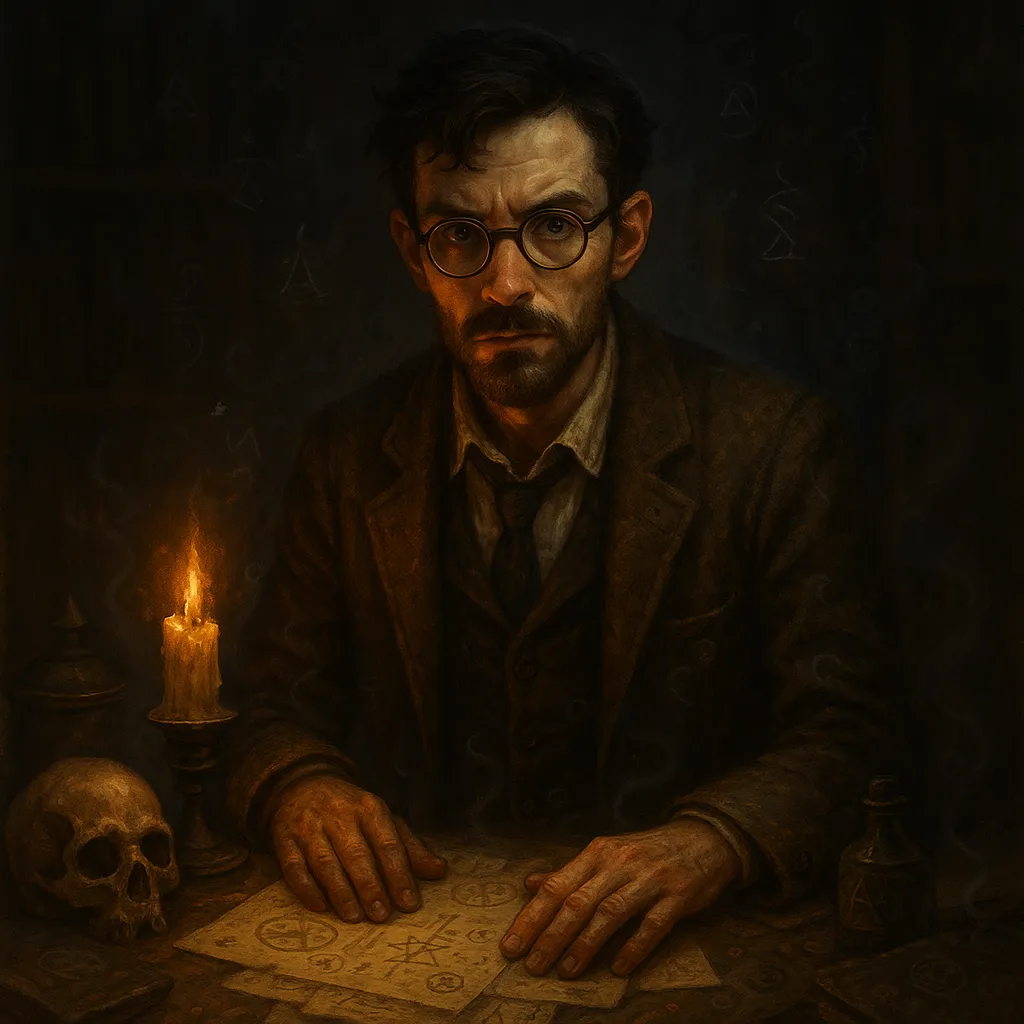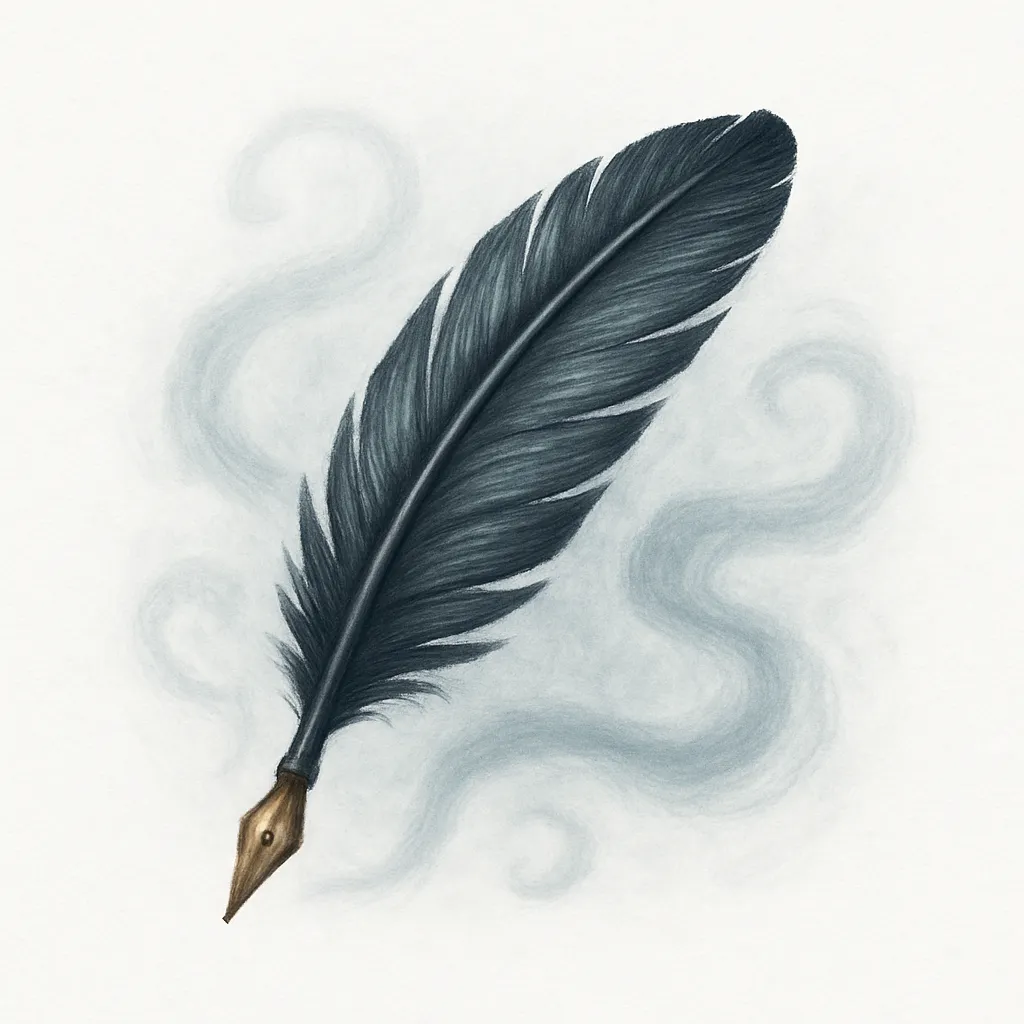Who Is Nathaniel Crowe

Who Is Nathaniel Crowe?
Compiled from the notes of Emory Holt, Archivist of The Arkham Examiner
There are men whose names live in headlines. Others whose legacies lie buried in footnotes. And then there is Nathaniel Crowe—whose story we are only beginning to piece together, and whose shadow stretches further than most would dare admit.
To the common citizen of Arkham, the name Crowe might evoke nothing at all. He is not a figure of public record. No monuments bear his likeness. Yet if one digs deep—into university archives, sealed hospital logs, or case files marked “Unresolved” in brittle manila folders—his presence is unmistakable. He is the axis around which countless inexplicable occurrences turn.
Crowe was once a rising star among the linguistic scholars at Miskatonic University, specializing in dead languages, ritual symbology, and prehistoric myth-cycles. By all accounts, he was brilliant—methodical, soft-spoken, and driven by a quiet urgency that colleagues mistook for eccentricity. He lectured on Coptic fragments and untranslated Sumerian tablets. He once stunned an entire symposium by reconstructing a liturgical dialect of Old Hyperborean thought to be extinct.
But then came the Dunwich incident.
The Fall From Academia
Officially, the expedition was a field study tied to an obscure set of Neolithic ruins outside Dunwich. Unofficially, it was a response to an anonymous letter Crowe had received—one hinting at a subterranean site untouched by time, bearing symbols older than written history.
Crowe led a team of four. Only he returned with his mind intact.
Of the others: one vanished without a trace, another was found months later in a cave several miles from the dig site—raving, naked, and half-starved. The third died of wounds no animal in Massachusetts is known to inflict. The final member, a graduate assistant named Elbridge March, spent his last hours painting concentric circles on the interior walls of the expedition tent with his own blood before succumbing to what coroners would later describe as “systemic collapse.”
Crowe was found days later at the base of a cairn, delirious and muttering phrases in a tongue no one could identify.
He spent seven weeks in isolation at St. Mary’s Hospital under neurological observation. When discharged, he resigned from the university. No public statement was made. The incident was buried under academic silence.
A Life in the Shadows
But that was not the end.
Following his departure from Miskatonic, Crowe faded from public view. Yet over the next decade, strange reports began to surface—quietly, and often through indirect channels. A child recovered from the tunnels beneath Innsmouth, bearing a drawing of a man matching Crowe’s description. A burned farmhouse outside Aylesbury, with a charred notebook recovered intact—its contents written in the same cipher found in Crowe’s lecture notes. Eyewitness accounts of a lone figure standing on the cliffs near Kingsport during a mass hallucination event later dismissed by local authorities.
He had become something else entirely: a paranormal investigator. Not the sensational kind that peddles tricks for a crowd, but a scholar in exile. A field agent for the unspeakable. Clients found him through whispers, or through other clients. He accepted cases no one else would touch—disappearances, impossible illnesses, recurring dreams tied to locations long forgotten.
He never advertised. He rarely explained. But he always returned with an answer, though not always one the living wished to hear.
The Man Behind the Work
I have read his journals. I’ve held the pages in my hands, trembling not from age, but from whatever truth they struggle to contain.
Crowe was not fearless. On the contrary, his writing reveals a man very much aware of the toll his work exacted. He wrote often of sleeplessness, of migraines triggered by glyphs that “shifted when read aloud,” of a “presence” that followed him from one investigation to the next. He feared the growing gap between what he could explain and what he could prove. And most of all, he feared what he called “the recursive gaze”—the idea that once you begin to study a thing deeply enough, it begins to study you in return.
Yet he pressed on.
He was not a hero in the conventional sense. He bore no weapon, wore no badge. But he pursued answers with the same dedication a physician might show to a patient with no diagnosis—relentlessly, ethically, but never without cost.
The Legacy He Left Behind
Crowe vanished for the final time in the winter of 1924. The last entry in his journal was dated November 13th. It contains no coordinates, no farewell. Only the following line, written in trembling hand:
“The sigil is no longer dormant. I go now to speak with what sleeps beneath.”
No one has seen him since. No body has been found.
And yet, the journals continue to arrive.
They are postmarked from different cities. They are delivered in strange packaging. One arrived soaked in seawater. Another bore no postage at all—only a hand-drawn rune where a stamp should be. Each new volume expands the archive, offering pieces of investigations that span years, continents, and belief systems.
From these fragments, I have attempted to reconstruct his legacy—not as folklore, but as documentation. These chronicles are not embellished tales. They are field reports disguised as stories. They are records of the uncanny, recorded by a man who once taught ancient languages but died learning one no man should know.
What Remains
Nathaniel Crowe was many things: scholar, skeptic, recluse, recorder of the inexplicable. But above all, he was a witness. A man who walked too close to the edge of what reality allows—and took notes for those of us who dare to look over it.
His work lives on in the chronicles published here at The Arkham Examiner, and through the readers willing to follow him into the dark, one investigation at a time.
I can only hope that wherever he is now, he has finally found quiet.
—Emory Holt, Archivist, The Arkham Examiner
